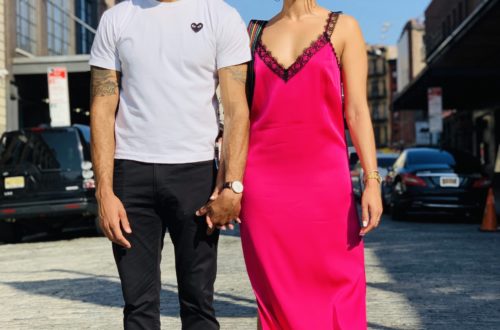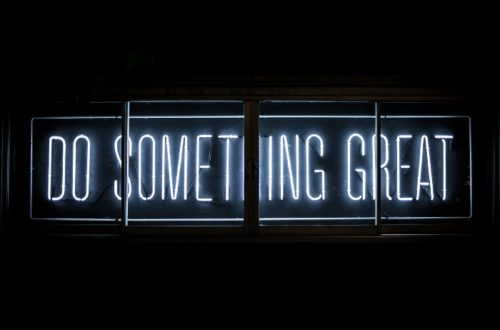
Yearly Reflection + Goal Setting
It’s December so about the time many people start setting goals and intentions for the next year. There are so many ways to reflect and capture goals and I’ve tried a few different methods over the years. Sharing my latest approach here in case you’re looking for goal setting inspiration.
My goal setting process is made up of different parts. Feel free to use them all or just what’s most appealing to you. There’s really no right or wrong way, so do what feels right for you.
PART I: CURRENT YEAR REFLECTION
To reflect, I go back to the document I used to set my previous year goals (an Apple note titled 2020 Goals).
I start by looking at my 2020 goals and the intentions I set for myself and just review them.
Next, I add a section to the top of my previous year goals titled “WINS” and jot down wins from the past year.
Then, I answer the following questions:
- What am I grateful for?
- How am I fortunate?
- What about this year made me better?
- What did I enjoy this year?
- What did I not enjoy this year?
- What do I have to celebrate from this past year?
- What have I learned about my values and priorities?
- What was challenging? What did I learn about myself from these challenges?
- How will I incorporate these insights into how I choose to show up as a partner, daughter, sister, friend, leader?
- How can I help others close out 2020 well?
- What one or two habits will be most impactful for me to commit to in 2021?
PART II: NEXT YEAR GOAL SETTING
*Note: I usually spread these exercises out over a couple of days.
To get started, I jot down answers to the following questions:
- What do I want this year to be about?
- What do I want to learn?
- How do I want to feel?
- What do I want to experience?
- What financial investment can I make that will improve my quality of life?
When I reflect at the end of next year, what do I want the theme to be? If you do this, imagine yourself so vividly living out this next year. You know that thing you (we all) do when you think of something you don’t want to happen and you play it out in such detail it almost feels real? Do this for all the things you do want to happen next year. Details are key.
Close your eyes and imagine the best version of you possible. Dream so big and focus on designing the life you want.
After completing that exercise, I think through the following:
- One word which is my focus or theme for the year. It’s like a north star for the year and forces me to be really clear about the intention and tone I want to set for the year. It’s also an easy way to remember what I want to focus on for the year. Previous year’s words have been: essentialism, community, financial health, empathy, create, discipline and follow through.
- Focus areas. This section usually starts with “When in doubt, focus on…” and include 1–2 things max that are key to focus on if I start to feel lost.
- Quotes to reference. I capture inspiring quotes in many places, but this section is for quotes I come across throughout the year that remind me of my goals and intentions or speak to me so much that I want to reference them regularly. I start with 1–2, but by the end of the year this is a long list.
- Categories that I want to set goals in. My current categories include:
- Personal/Self
- Creative
- Career/Professional Development
- Community
- Financial
- Relationships
- Spiritual/Mental Health
- Physical Health
- Adventure/Travel
- Goals + Habits. I include goals + habits for each category. I started breaking out my goals in this way in 2018 and found it super helpful in turning my goals into actions. If goals are what I want to accomplish, habits are the how. I found this method especially helpful because often there are several habits/approaches to accomplish a goal. Writing out the specific habits I’m going to try forces me to be really clear about my goals and how I’ll get there and gives me something to reference throughout the year. If I’m having trouble reaching a specific goal, I usually ask myself if there is another habit/approach I can try to get me closer to that goal.
I like having my goals and habits written out this way because it gives me clarity when referring to and reassessing my goals throughout the year.
I personally don’t believe in setting and forgetting your goals or working towards them relentlessly without pausing to ask yourself throughout the year: Is this goal still important to me and why?
If the answer to the question above is yes then I reevaluate the habits and see if I can change my habits/approach. If the answer is no, I ask myself if it’s something I want to move to the following year. If the answer is still no then I strike it through.
Goals are not meant to be blindly followed just because you set them. What mattered to you in December may not longer be important to you in May and that’s okay. You can’t possibly know what changes life will bring that may cause a shift in your goals. Reassessing goals is just as important as setting them in the first place.
Lastly, make sure to put this somewhere that will be easy for you to reference often. For me, I use Apple notes. It’s not the sexiest, but I have my goals in one note that is pinned to the top so it’s always accessible to me. I probably scan this not a few times a week which helps keep me focused and helps me prioritize my time and effort.
Alright that’s all I got (for now). Let me know how you set goals and if there’s anything you’d add or change to the above. Happy New Year!




